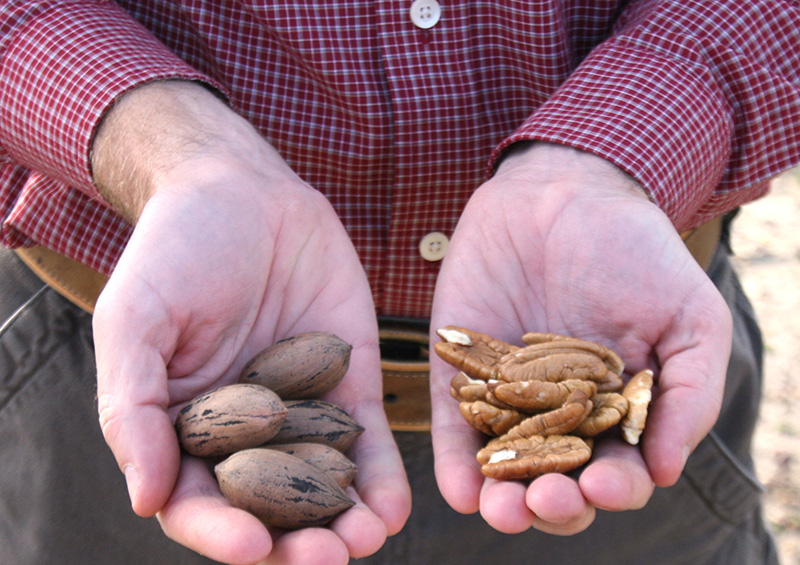
By Clint Thompson
Pecan interest has finally slowed amid rising input costs and a deflated market. Need proof? Just look at the attendance at Tuesday’s Pecan Beginner’s School at the University of Georgia Tifton Campus Conference Center.
“The planting of nursery trees over the past year did drop. The number of trees planted, people are still planting, but I think the number of new people getting into it has dropped, as would be expected,” said UGA Extension pecan specialist Lenny Wells. “We see that at this class we’re doing today. The last time we did this, we had a couple of hundred people. Today we’re around 75 people. But I still get calls almost every day of somebody wanting to get into the pecan industry. There’s still some interest out there.”
Story of Last Season
It is a difficult time in the pecan industry following a season marred by low prices. Georgia amassed 147.5 million pounds in yields, but the story of the season were prices that were half of what they were in previous seasons. Wells encourages those still interested in producing trees to do so for the love of growing pecans and not have the mindset of how much money they can earn.
“Regardless of what the market is doing, there’s easier ways to make money. If you don’t enjoy growing pecans or wouldn’t take some pleasure from it, I would not encourage doing it, regardless of what the market is doing,” Wells said.
Scab-resistant varieties could be the x-factor in growers producing a profitable crop in future seasons. Wells said the costs to manage scab disease is approximately 12% of the annual budget. If growers produce resistant varieties that may only require a couple of sprays, that is a lot more manageable than producing varieties that are highly susceptible to scab and may require as much as 15 sprays a year.
“We’ve got to find ways to reduce the costs of growing pecans to remain profitable. That’s something that every grower needs to keep in mind, whether they’re new growers or been growing for a long time,” Wells said. “I think the best thing to do to try to reduce your future costs of production if you’re planting new trees now is going to be the selection of varieties. You want to plant varieties that produce good quality and have good scab resistance. That’s really going to be the key.”
Wells recommends Zinner and Avalon varieties. Though Pawnee is vulnerable to scab, it is an early harvest variety that should attract top dollar.









